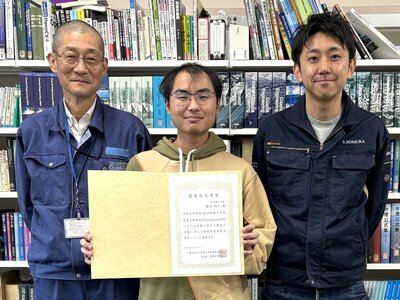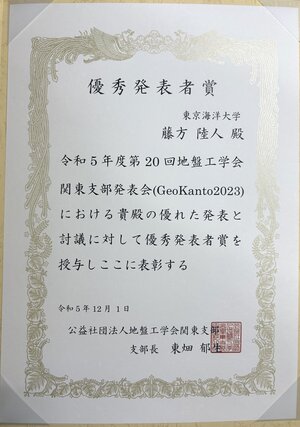Shinagawa Etchujima Campus Graduate School of Marine Science and Technology
Graduate School of Marine Science and Technology
The Graduate School of Marine Science and Technology has a doctoral course divided into a master's course and a doctoral course, and trains independent highly specialized professionals who open up cutting-edge fields.Furthermore, in collaboration with the Japan Fisheries Research and Education Agency, the Japan Agency for Marine-Earth Science and Technology, and the National Institute of Maritime, Port and Aviation Technology, we will further enhance education and research and improve the quality of graduate students. We are trying to
-

-
School of Marine Life ScienceShinagawa Campus
- Department of Marine Biological Resources
- Department of Food Production Science
- Department of Ocean Policy and Culture
-

-
School of Marine TechnologyEtchujima Campus
- Undergraduate Course of Maritime Systems Engineering
- Undergraduate Course of Marine Electronics and Mechanical Engineering
- Undergraduate Course of Logistics and Information Engineering
-

-
Faculty of Marine Resources and EnvironmentShinagawa Campus
- Department of Marine Environmental Science
- Department of Marine Resources and Energy
[Awards and Commendations] Rikuto Fujikata (20st year master's student) received the Excellent Presenter Award at the 2023th Japan Geotechnical Society Kanto Branch Presentation (GeokantoXNUMX).
【Winner】
Rikuto Fujikata (1st year master's program, Department of Marine Resources and Environmental Studies, Graduate School of Marine Science and Technology)
[Title of award-winning research]
Seated three-component cone penetration test on the surface layer of the deep seabed in Suruga Bay
[Details of award-winning research]
Indoor soil tests using sampling samples are commonly used to determine the soil quality of the ground.On the other hand, in in-situ tests, a simple discrimination method using a soil classification chart proposed by Robertson using an electric cone penetration test is also widely used.Although this chart was proposed for land-based ground in foreign countries, it has been shown to be fully applicable to land-based ground in Japan based on the results of many past studies and practical experience.However, the applicability to oceanic ground (particularly the deep sea), which has different ground composition and sedimentation conditions from terrestrial ground, has not yet been sufficiently investigated.Therefore, we developed a seated three-component cone penetration test device that can be used in the deep sea, and conducted field tests on the deep seabed ground in Suruga Bay.Furthermore, the obtained results were compared with the physical test results of sampled samples at the same location.This field test was carried out from May 2023th to 5th, 10 by the Japan Agency for Marine-Earth Science and Technology (JAMSTEC) using the deep-sea submersible research vessel support mother vessel “Yokosuka” and the manned submersible research vessel “Shinkai 17” (YK6500-23C). It was carried out within.

From left) Professor Kazuo Tani, Rikuto Fujikata, Associate Professor Shun Nomura
<Related links>
Japan Geotechnical Society Kanto Branch
Japan Geotechnical Society Kanto Branch Presentation GeoKanto
20th Kanto Branch Presentation Excellent Presenter





